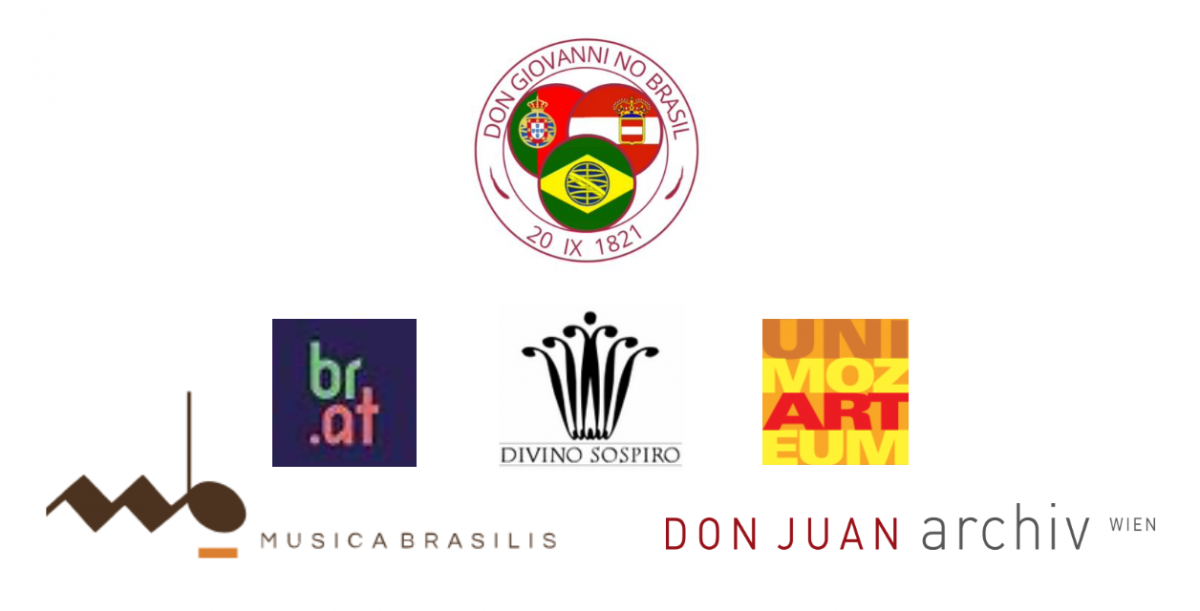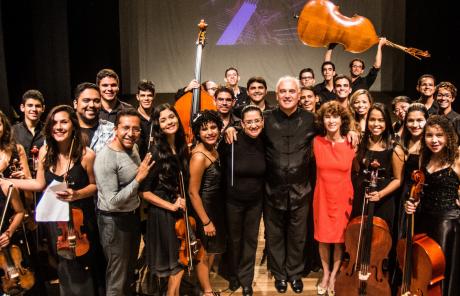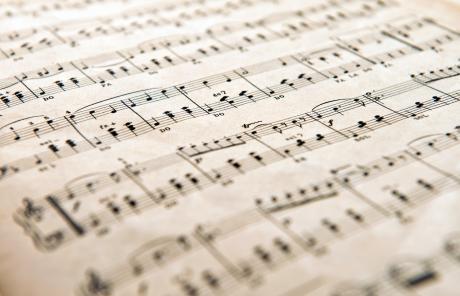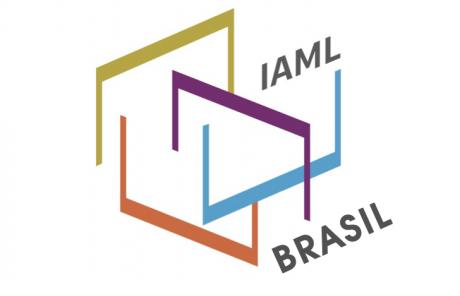200 Years of Don Giovanni in Brazil - The “Opera of all Operas’” Debut beyond Europe on 20 September 1821 in Rio de Janeiro and its Cultural-Political Context
INTERNATIONAL CONFERENCE - 29 SEPTEMBER – 1st OCTOBER 2022
VIENNA – DON JUAN ARCHIV WIEN
ORGANIZED BY: Don Juan Archiv Wien; Centro Cultural Brasil-Áustria; Divino Sospiro – Centro de Estudos Musicais Setecentistas de Portugal; Universitat Mozarteum Salzburg; Musica Brasilis
PROGRAMME:
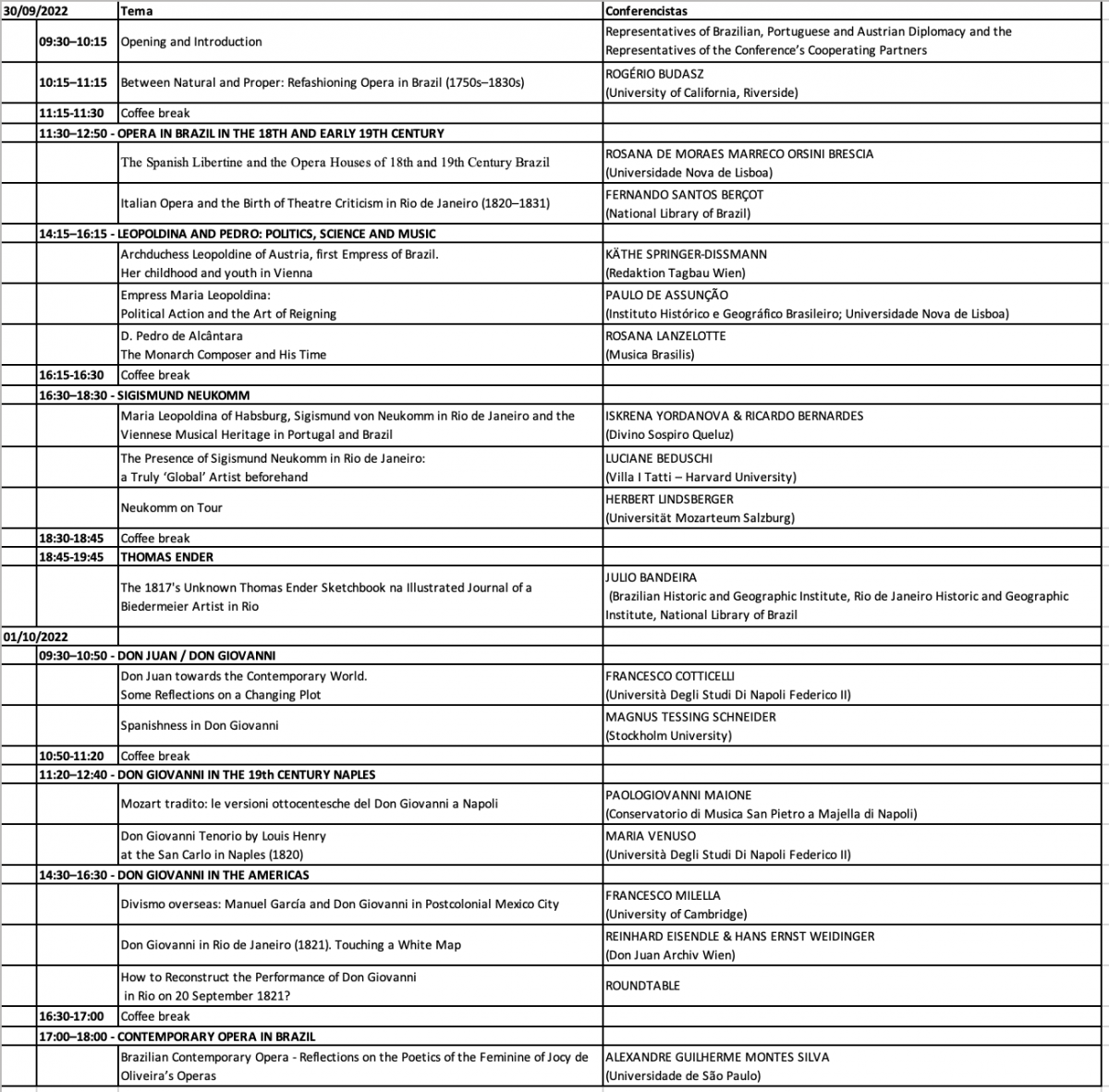
On 20 September 1821, Da Ponte’s and Mozart’s Don Giovanni was performed for the first time in Brazil, by the “Companhia italiana” at the Real Theatro de São João in Rio de Janeiro; in those days Rio was the capital of the Kingdom of Brazil then united with the Kingdom of Portugal. That evening, the opera was seen and heard for the very first time beyond Europe – five years before the famous first New York performance of 25 May 1826 at the Park Theatre by the Garcia Opera Troupe, with the involvement of Lorenzo da Ponte, the opera’s poet.
On 20 September 2021, the bicentenary of the Rio performance was celebrated by Don Juan Archiv Wien together with all cooperation partners – Centro Cultural Brasil- Áustria (Vienna), Divino Sospiro Centro de Estudos Musicais Setecentistas de Portugal (Queluz/Lisbon), Universität Mozarteum (Salzburg), Musica Brasilis (Rio de Janeiro) – with a livestream concert featuring the contributions of Brazilian, Portuguese and Austrian musicians.
Currently, Don Juan Archiv & Partners are preparing an international symposium to be realized in Vienna from 29 September to 1 October 2022, with a focus on the cultural- political context of this remarkable event in 1821 as part of a historical constellation connecting Brazil via Portugal with Austria.
Fourteen years prior to the Rio Don Giovanni, on 29 November 1807, the evening before the occupation of Lisbon by Napoleon’s army, the Portuguese Court left for Brazil. On 8 March 1808, Rio de Janeiro became the new capital of the Império Português. This brought about essential changes in the social and cultural infrastructure of the city and in the political framework of the colony.
The city was, for example, enriched with the construction of a new opera house, opened in 1813.
Two years later, the colony (a viceroyalty), as a result of the Vienna Congress enactment from 16 December 1815, was raised to the rank of a kingdom, thus putting it on a par with Portugal. Three months after, on 20 March 1816, at the death of Queen Maria I, the united crowns devolved upon her son the Prince Regent, thenceforth King João VI of Portugal, Brazil, and the Algarves.
At that period, the King looked for a bride for his 19-year-old eldest son and successor Dom Pedro de Alcântara, and found her in the second daughter of the Austrian Emperor Francis I, the Archduchess Leopoldina who disembarked in Rio de Janeiro on 5 November 1817.
The nuptials were accompanied by an imperial expedition, reputed to be the 19th century’s most remarkable European one to Brazil.
When the Archduchess arrived in Rio, the Salzburg-born composer and pianist Sigismund Neukomm was residing there as a member of King João’s Court. A pupil of both the Haydn brothers (Michael in Salzburg, Joseph in Vienna), he became the music teacher of Dom Pedro and Dona Leopoldina.
On 23 April 1821, four years after the Austrian wedding, the Portuguese Court left Brazil. The King installed his son Dom Pedro Prince Regent who with his wife remained in the country. The following five months prior to the premiere of Don Giovanni were politically turbulent, with mutinies and revolts proving the political manoeuvrability of the 23-year-old new Príncipe regente. On 2 September 1822, not even one year after the premiere, the Council of State, convoked and presided over by Dona Leopoldina, enacted the secession of Brazil from Portugal. On 7 September the news reached Dom Pedro who stayed with his entourage on the Ipiranga River near São Paulo where he proclaimed Brazil’s independence with the legendary Grito de Ipiranga, “Independência ou Morte”.
Thus, the first performance of Don Giovanni in Rio de Janeiro can be seen as an exemplary intersection of cultural, diplomatic, and political transfers between the Old and the New World, to be analysed at the conference in Vienna in September 2022.
***
For further information on the Don-Juan-in RIO-Project, please see the following booklet: Sigismund Neukomm in Brazil - A Concert Commemorating the Bicentenary of the First Performance of Don Giovanni out of Europe on 20 September 1821 (http://www.donjuanarchiv.at/fileadmin/DJA/Veranstaltungen/ Concerts/Concerts_2021/Neukomm-in-Brasil_Concert-booklet_web.pdf)
